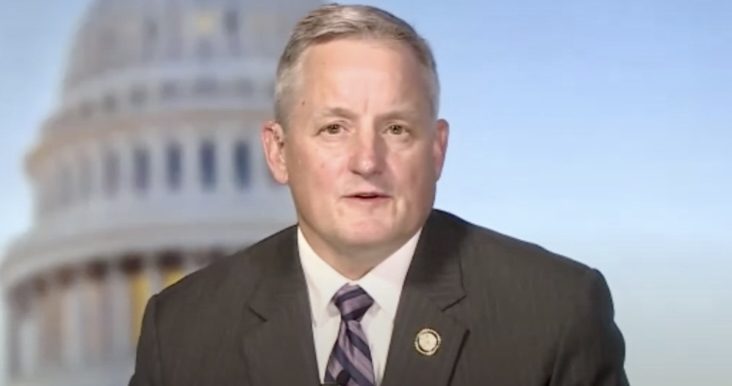U.S. Rep. Westerman details markup efforts; notes priorities for Medicaid reform
by May 12, 2025 7:46 am 1,045 views

U.S. Rep. Bruce Westerman, R-Hot Springs, was a guest on this week’s Talk Business & Politics D.C. Edition podcast and newsletter. The Fourth District Congressman chairs the House Natural Resources Committee, which passed a major markup bill out of committee last week.
That markup discussion was a grueling 15-hour session that saw Democrats on the panel submit 121 amendments. The bill, which could raise $20 billion or more, outlines a number of areas for revenue growth for the federal government involving leases of public lands and forests. It is part of the House GOP’s effort to find a revised $4 trillion in tax cuts and $2 trillion in reduced spending.
“On the Natural Resources Committee, we were really focusing on America’s energy dominance, how to free up more of our natural resources, whether it be oil and gas or mining, or even we’ve got some provisions in there to do some forestry management. All of these things will generate revenue for the federal government, which is a good thing for budget reconciliation because you’re not only looking at where you can cut spending, but you also want to increase revenue if you’re trying to balance the budget.”
The Natural Resources Committee bill is one of 11 eventual measures that will be folded into what President Donald Trump hopes will be a “big, beautiful” bill to make permanent the 2017 tax cuts and to slash government spending.
Westerman said the debates are far from over. With slim margins in the House, cooperation needed from the U.S. Senate, and a number of parliamentary maneuvers still a possibility, the congressman said there is much to navigate as the reconciliation process moves ahead.
“‘Fluid’ is a good way to look at that because we’ve got very top margins in the House and, at the end of the day, we have to have a bill that can get 218 votes in the House. Even the bill that we marked up in my committee, there’s a good chance before that goes on the floor that there will be a manager’s amendment in the Rules committee that strikes some of the things we had in or changes some of the things that we had in the bill… We’ve got to have everybody’s vote on it, so the negotiations continue and they will continue right up until the end.”
There are three committees that have yet to hold their markup hearings, which are expected this week. The committees are Agriculture, Ways and Means, and Energy and Commerce. The agriculture panel will have to consider revenues and costs of a Farm Bill and the SNAP food stamps program; Ways and Means will set tax policy; and Energy and Commerce has jurisdiction over several major programs, including Medicaid.
Medicaid has been a political hot potato and Westerman said he’s still not sure where the dust will settle on its potential restructuring. He did note two areas that he feels strongly are ripe for Medicaid reform. For starters, he wants to nullify provider taxes, which are state taxes levied on hospitals and nursing homes to help cover Medicaid expenditures and provide access to more federal matching funds.
“I think the provider taxes are something that need to go away over time,” he said.
The other Medicaid issue he wants to see change is eligibility, particularly work requirements, which he believes will address some waste and fraud in the system.
“I think you’ve also got to get rid of as much of the waste and fraud in these programs as you can,” he added. “I think most Americans would agree that if you’re old or you’re blind or you’re disabled in some way, or even if you just need a hand up, most people are good with helping people out like that. But most people are also, I think, in agreement that if you can work, you should get a job… It goes back to [President] Reagan’s idea that the best social welfare program ever invented is a job.”
You can listen to Westerman’s full interview at this link.
